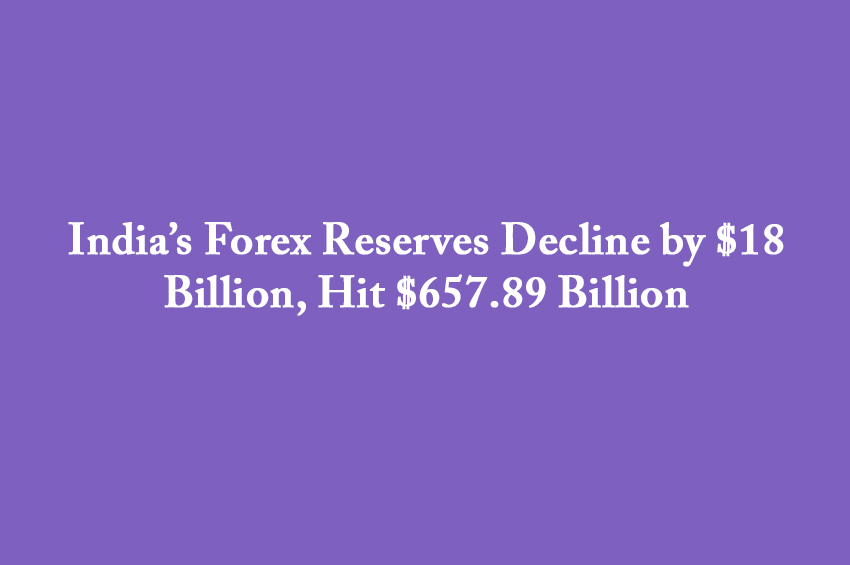Winning Bizness Desk
India's foreign exchange (forex) reserves have witnessed a significant decline, dropping by $17.76 billion to reach $657.89 billion in the week ending November 15, according to the Reserve Bank of India (RBI). This marks a notable contraction in reserves, following a $6.47 billion dip in the previous week, when the reserves stood at $675.65 billion.
Sharp Fall from Record Highs
India's forex reserves had peaked at an all-time high of $704.88 billion at the end of September 2024. Since then, reserves have been on a steady decline, cumulatively falling by $47 billion. The decline reflects changes in foreign currency assets, gold reserves, Special Drawing Rights (SDRs), and India’s reserves with the International Monetary Fund (IMF).
Foreign Currency Assets Take a Hit
Foreign currency assets (FCA), the largest component of forex reserves, saw a significant drop of $15.55 billion during the week, settling at $569.83 billion. FCAs are expressed in dollar terms and account for fluctuations in non-US currencies like the Euro, Pound, and Yen held in reserves.
Gold Reserves and Other Components Decline
India's gold reserves also declined by $2.07 billion, reducing their value to $65.75 billion. Similarly, the SDRs with the International Monetary Fund fell by $94 million to $18.06 billion. Additionally, India’s reserve position with the IMF decreased by $51 million, standing at $4.25 billion as of November 15.
Reasons Behind the Decline
The steady erosion in India’s forex reserves is influenced by several factors:
- Intervention by the RBI: The central bank often sells foreign currency to stabilize the Indian rupee against global currencies, which reduces reserves.
- Global Market Volatility: Fluctuations in exchange rates and valuation changes in reserves denominated in non-dollar currencies have contributed to the fall.
- Weakening of Non-US Currencies: Depreciation in the Euro, Pound, and Yen has impacted the dollar valuation of these holdings.
Impact and Outlook
The falling reserves, while concerning, are still substantial, keeping India among the top holders of forex reserves globally. However, sustained declines could limit the RBI's ability to stabilize the rupee during market volatility and meet external obligations. Experts suggest that the current decline is part of a cyclical adjustment and not an immediate cause for alarm. Policymakers continue to monitor global market trends and exchange rate movements to mitigate risks to the economy. India’s forex reserves remain critical in safeguarding economic stability, supporting imports, and maintaining investor confidence during global uncertainties.


